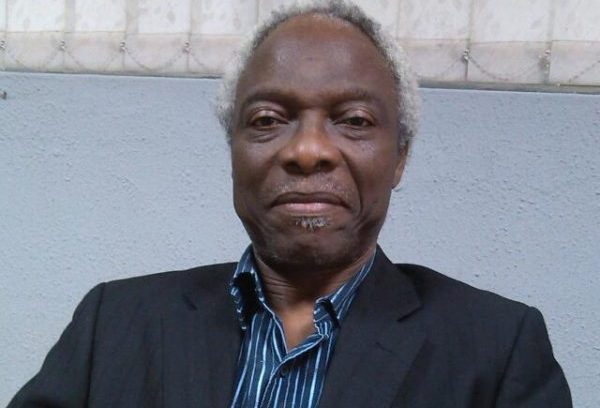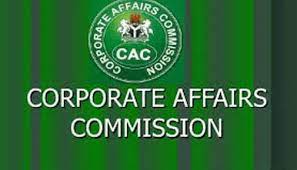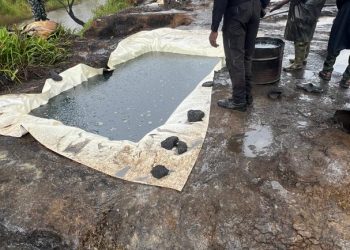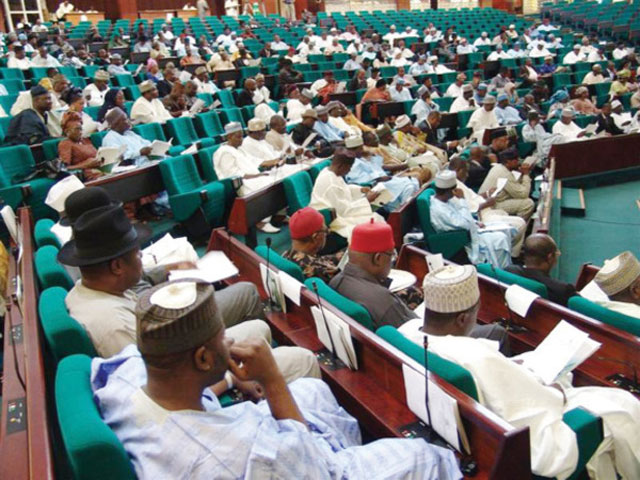Hon. Wale Oshun is an astute politician and one of the key players in the events that resulted in the June 12, 1993 saga that is being celebrated today.
A close associate of the acclaimed winner of the June 12, 1993 presidential election, Chief Moshood Kashimawo Olawale Abiola, Oshun was, in fact, in the company of Abiola when a reliable source disclosed to Abiola on the phone that the June 12 election, which he had so far won overwhelmingly would be annulled in a nationwide broadcast by the Military President, Ibrahim Babangida.
He was part of the June 12 struggle. The different books he has written on the various events give great insight, from an insider, into the events that played out. To The Next Edition, Hon. Wale Oshun, is a man just apt for an occasion like this when June 12 is declared Democracy Day and Chief Moshood Abiola is being celebrated. YUSUF MOHAMMED went after him for an exclusive interview and returned with something delightful in the best tradition of The Next Edition. Excerpts:
How do you feel about the declaration of June 12 as Democracy Day by President Muhammadu Buhari?
It is a welcome decision. I can say it is well received by all Nigerians, particularly the Yorubas. The reaction has been that of ‘this is a good decision even if it is late.’
You were one of those at the forefront in the battle against the annulment of June 12. How would you describe the battle then?
It started like something that was not real. I mean I could still recall when Babangida addressed the nation. Before that evening I was on a flight with Chief MKO Abiola from Katsina. We were flying back to Lagos having gone to commiserate with the late Shehu Musa Yar’Adua on the loss of a member of his family. We were flying back to Lagos and Abiola received a telephone call in-flight saying that Babangida had taken a decision to annul the election and he would be addressing the country shortly. It was like: ‘Is it possible?’
Cuts in:
What was his reaction? How did he take it at that moment?
Those who know him quite well would appreciate that what we had in Abiola was an ebullient person with great inner strength who did not show weakness in public. He was like: ‘Is that possible? Can he do it? But at the end of the day, by the time we were flying back, I think somebody then advised that perhaps we could land in Akure (Ondo State capital) but Abiola insisted that we landed in Lagos.
He was still asking “could it be true?” But eventually it turned out to be true. It did not look real. How could you have gone through such a process that was adjudged to be free and to be fair? And for all intents and purposes a lot of preparations went into it both at INEC stage and even by the military government itself, not to talk of the political parties. And then to take such a decision… But it is a good thing that Babangida is still alive because I am sure that as a human being he must be regretting the day he took that decision. I am sure it is one of God’s wonderful ways of showing the weakness of man that Babangida himself is still alive to witness the decision of President Buhari.
After many years of waiting, did you ever imagine that a day like this will come?
Read also: June 12: Why I won’t attend Abiola’s GCFR investiture –Humphrey Nwosu
If you ask me, it is just like asking me if Nigeria will ever be restructured. I will say yes. The day will come. Whether all the present actors are there or not, that day will come. So, somehow I had always felt in my bones that a day will come like this. And for that reason, in fact the group which I head, the Afenifere Renewal Group for many years on an annual basis would write to the Presidency to advise, to acknowledge cautioning that it is necessary you take this decision. I had always felt that Justice will come one day and part of it is coming now. But Nigerians themselves would have received justice when Buhari takes it a bit further, takes more courage and look into the issue of restructuring, modifying the Constitution in a way that Nigerians can have a truly federal country because anywhere in the world, this has been the issue. God himself created us in a manifold way across territories. He has created different culture, different tongues, languages; he had also imbibed each of them with different culture on how to look at issue and how to treat matters. Because these differences are there, human beings will never be the same. They will think differently. But the strength of each group lies in being able to manifest the good portions of their own beliefs. So, no other group will then have the supremacy of thoughts to super-impose their own beliefs on other people. That is why we are saying let there be restructuring so that people in various nationalities can develop according to their own thinking, their own pace.
All these strengths can be brought together at the national level. So, if Buhari has that courage to push that further, then justice would have come to everyone.
Some would argue that it was convenient for Buhari being from the north to take that decision and that Obasanjo and Jonathan being from the South were in more difficult positions?
If they were bold, if they were Nigerians, if they were courageous, if you are a president of a country what should matter to you most would be whether the decision you intend to take will benefit the people of that country. And this is the kind of decision that can heal wounds. Once wounds are healed people can relate better with one another. It is arrant nonsense to think that Obasanjo could not take a decision and Buhari could take that decision. And both of them had occupied that exalted seat of the Presidency of Nigeria. So, what makes Buhari able to make that decision that Obasanjo could not because he was afraid? Who was he afraid of, his own shadow? He was afraid of the North? Why is Buhari not afraid of the same North? Is it because he is from there?
This declaration tells us that there was injustice in 1993.
Do you think the perpetrators of the injustice should be punished?
If you ask me, that Babangida destroyed what would have given him the greatest glory as a Head of State, the greatest legacy as a Head of State, would have been sufficient punishment because it must have riled him. It would have made him to query himself: ‘Why did I do this?’ For me that is sufficient punishment. And that is why sometimes some people say that hell fire starts from the world. You will start reaping it from the world.
There is no way anybody would say that Babangida would have confidently said to himself that he had taken a just decision. He knew he didn’t. And because it was not just, he would pay that penalty which already I am sure he started paying from the 24th of June 1993 because in any case, after that, he was pushed out of office unceremoniously even though he said he stepped aside. He didn’t step aside voluntarily. I was in the House of Representatives at that time and we knew what happened. We knew how his government, his people, his officials, and his aides, tried to influence the House of Representatives to take a decision to request that his tenure should be extended. We knew how much he tried to do that but failed. Ultimately, Abacha succeeded in pushing him out.
In some quarters it is believed that President Buhari took this decision to spite former President Olusegun Obasanjo and former Head of State, Ibrahim Babangida, considering his problems with them.
Do you think if they were in good terms he would have gone ahead with that decision?
Of course, they could have advised him against it if he had consulted them as National Council of States members. Well, maybe because they are at loggerheads now, that might have released him from consulting with them. That is it. But to say that he wouldn’t have made that decision if their relationship was cordial, I would think that Buhari took that decision also because he wants to leave a good legacy. His government, in a way, has been troubled; troubled by the herdsmen crisis, troubled by the recession, troubled by many factors. So, every good decision that he can take now would also help him in building a kind of legacy that any reasonable person will not forget. That is my own interpretation. ‘You know that maybe I have had a turbulent reign but then there are certain things I can do to moderate it.’ I can see that kind of a frame of mind.
Beyond the rhetoric everywhere about the special declaration.
How do you think June 12 should be celebrated now that it has been declared as Democracy Day?
Well, when you say democracy day it means most probably to be a public holiday across the whole country. And….
(Cuts in) Sorry, this is now tied to MKO Abiola, unlike May 29 which really was chosen randomly.
Yes, it is tied to Abiola and all those who fell with him. All the martyrs who were slaughtered on Ikorodu Road because they dared to demonstrate. All those who died in detention and all those who lost their freedom and made real sacrifices. People like Opadokun, like myself, those who lost their lives, Baba (Alfred) Rewane, Kudirat Abiola and so on. Abiola is only a metaphor for all of those people. The journalist who was killed in a bomb explosion in Kaduna. I mean they all died because of June 12. I am sure there are many people who died unsung; who for one reason or the other lost their lives, but the society is even unaware. So, this recognition is a statement for all of them. Even if we say it is for Abiola, Abiola represents all the people that made sacrifices.
Are there lessons to be learnt from the June 12 debacle?
Well, the lessons to be learnt here is that in life Justice will prevail at its own time even if it is belated. It will come. That is why I say this also gives me the confidence that one day, the restructuring we are clamouring about in Nigeria for greater freedom and true federation, will come to past because whatever is just will always prevail. And it will come at its own time.
You have written some books on June 12 struggles, in term of sales, how well did the book do and what really inspired you to write those books?
Well, you know I am a politician equally; the truth is that politics does not have to be played only through elective offices. There are many platforms to make contributions. After my last election, seeing the trauma that the average politician goes through, particularly in the developing countries like ours, what they go through to get elected I felt that I want to remain in politics but certainly may not be interested in throwing myself at that kind of trauma anymore. But I want to be able to influence things as well. I am still writing because I am a bookist in the offing. My writing is to contribute to the discourse. Of course, to also unfold hidden things in the political system so that people can learn from it because there are many things that happen that get swept under the carpet but are significant in their own way. I will still write because that would be my own way of contributing.
Are there some hidden aspects of June 12 you will like to reveal?
I have spoken extensively in my book, Clapping with one hand, on June 12. I spoke extensively there.
Do you feel you have said it all in regards to June 12?
For the purpose of public discourse, yes, because I have also read other books written by Opadokun, written by Senator Biyi Durojaye, written by Humphrey Nwosu also on June 12. And so, within the variety of those books, I am sure almost every other thing must have been put on the table. If there are missing links in mine, it must have been filled by either Durojaye or Opadokun or even Nwosu himself because Nwosu provided information that were hidden from us – Information from the official side. The decision making process that led to the annulment, even his own humiliation and all that by the Babangida regime. So, his own book really worked on that aspect. So, I think taking all these books in totality, I would be surprised if there is anything left.
Well, if there is anything left, there may be issues within the military intelligence that only they can talk about. But as you can see, Nigerian military officers hardly write. We have been pleading with one to share his experience and all he would say is just leave me out of this writing business. I don’t think they are interested in writing. If there are secrets, and there will be. There are questions to be answered. Who was afraid of the civil government of Abiola? Who threatened Babangida with coup d’etat if Abiola was sworn in? The David Marks are there. They are the beneficiaries of June 12. He became Senate President, but he was one of those who worked against June 12. Even though when Abacha threatened him, he ran back into the June 12 camp. You can see the contradiction. If there are secrets, maybe a person like David Mark, Babangida or Akilu will have them.
What advice do you have for aspiring politicians, especially young people who would like to go into politics?
My genuine advice is that they must have their own occupation, something that they can fall back on when they are out of office. It is possible that you want to make a lifelong career out of public office but if a person desires that, it might be best to go through the civil service. But if you are talking in terms of being in politics, contesting elections because political parties have ups and downs, then it may be necessary that you have a means of livelihood so that when the downs come, you have something to fall back on. And that kind of assurance enables you to become confident and to be just to yourself. I think that is necessary. Speaking from my own experience, I went into politics having settled one or two aspects of life. Go into politics believing that you can resolve one or two problems if they arise in your life. But if you go into politics and you have nothing to fall back on, it would be a problem. That is why once some politicians are out of office, you see them struggling to go back, hiring thugs, injuring others, and destroying the integrity of others just to be able to go back because they know that once they are down, that is the end. If you know that you can survive out of political limelight, you will not bring in that same desperation. For younger people, in short, I will say develop a career path as well. It is necessary.











